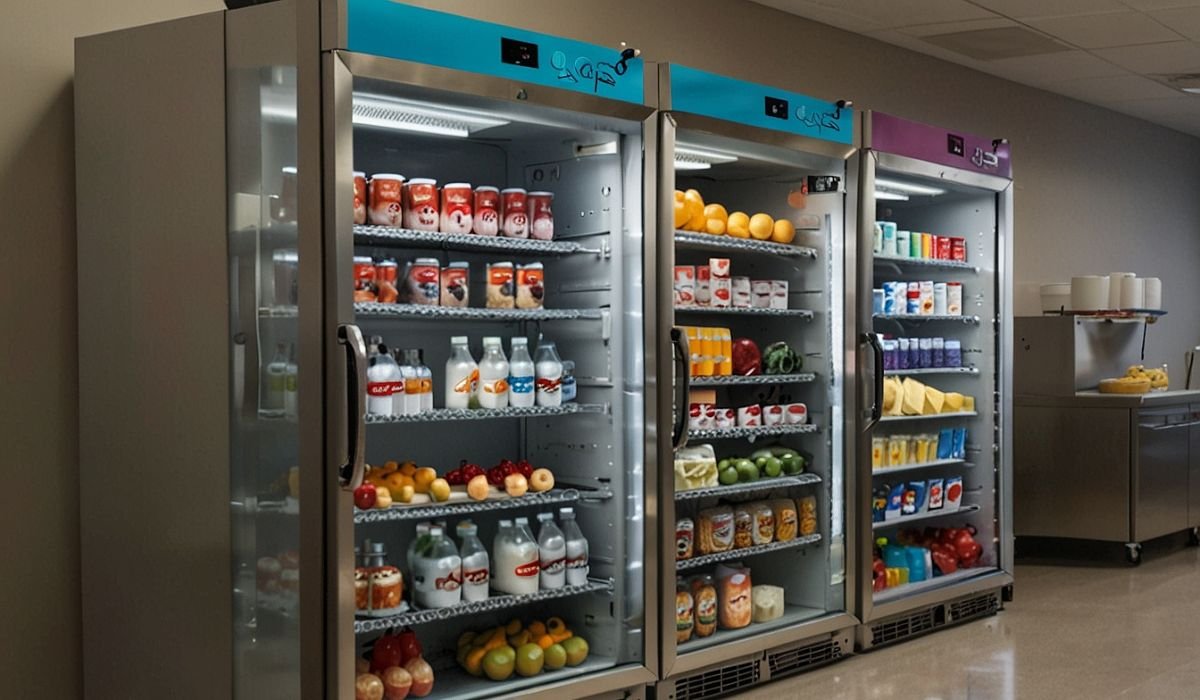Medical refrigerators are essential for maintaining the efficacy and safety of vaccines, medications, and biological samples. In healthcare facilities, proper storage conditions are not just a convenience—they are a regulatory requirement. Choosing the right medical refrigerator ensures that sensitive materials are stored at the correct temperatures and remain viable for patient care and research. With so many models and features available, it’s important to evaluate your needs carefully. Here are six critical factors to consider when selecting medical refrigerators for healthcare facilities.
1. Temperature Stability and Accuracy
The primary purpose of a medical refrigerator is to maintain consistent temperatures. Many vaccines, medications, and laboratory samples are highly sensitive to temperature fluctuations. Therefore, the chosen unit must:
- Maintain a precise temperature range: Most medical refrigerators operate between 2°C and 8°C for vaccines and medications. Laboratory freezers may require even lower temperatures.
- Minimize fluctuations: Look for refrigerators with advanced temperature control systems that reduce the risk of deviation.
- Provide digital temperature monitoring: Built-in digital thermometers or monitoring systems help staff track real-time temperatures.
Reliable temperature stability is essential for compliance with regulatory guidelines and the preservation of sensitive products.
2. Storage Capacity and Layout
The storage needs of a healthcare facility vary depending on patient volume, the types of vaccines or medications stored, and the frequency of use. Key considerations include:
- Internal volume: Ensure the refrigerator has sufficient capacity for your current needs while leaving room for future expansion.
- Shelving flexibility: Adjustable shelves allow you to store items of various sizes efficiently.
- Organization and labeling: Clear compartments and shelving arrangements make it easier for staff to quickly locate and retrieve items, reducing handling errors.
Selecting a unit with appropriate capacity ensures that staff can store all necessary medical products without overcrowding, which can compromise temperature consistency.
3. Compliance with Regulatory Standards
Medical refrigerators are subject to strict standards to ensure the safety and efficacy of stored items. When choosing a unit, confirm that it:
- Meets FDA or Health Canada regulations: Compliance ensures legal and operational safety.
- Follows CDC or WHO guidelines for vaccine storage: Particularly critical for immunization programs.
- Includes safety certifications: Look for UL, CE, or ISO certifications depending on local regulations.
Choosing a compliant refrigerator reduces liability risks and helps maintain the trust of patients and regulatory authorities.
4. Security and Access Control
Medical refrigerators often store high-value and sensitive medications, making security an important consideration. Features to look for include:
- Lockable doors: Prevent unauthorized access to medications and samples.
- Electronic access control: Advanced units allow for PIN or card access to track usage and prevent misuse.
- Alarms for door openings and temperature excursions: Alerts notify staff immediately if the refrigerator is left open or temperatures deviate from the safe range.
Investing in a secure medical refrigerator protects valuable healthcare assets and ensures patient safety.
ALSO READ: The weekly spoon .com: Your Guide to Food Tech News and Insights
5. Energy Efficiency and Reliability
Healthcare facilities operate around the clock, making energy efficiency and reliability key considerations:
- Energy-efficient compressors and insulation: Reduce operational costs and environmental impact.
- Backup power options: Consider refrigerators that include battery backups or can be connected to emergency generators to protect stored items during power outages.
- Durable construction: Stainless steel interiors and robust components increase longevity and reduce maintenance costs.
Reliable, energy-efficient refrigerators save money while ensuring uninterrupted service in critical healthcare settings.
6. Brand Reputation and Support Services
Selecting a medical refrigerator from a reputable manufacturer ensures you receive a high-quality product backed by support services. Consider:
- Manufacturer reputation: Established brands are more likely to provide durable and reliable units.
- Warranty and service plans: Check for warranties covering parts and labor and available maintenance contracts.
- Availability of replacement parts: Easy access to parts minimizes downtime in case of repairs.
Investing in a trusted brand reduces the likelihood of unexpected breakdowns and ensures professional support when needed.
Bonus Tip: Choosing Specialized Medical Refrigerators
Some healthcare facilities have specialized needs, such as ultra-low temperature storage for vaccines or research samples. In such cases, consider:
- Vaccine-specific refrigerators with precise digital controls and alarm systems.
- Laboratory-grade units capable of maintaining temperatures as low as -80°C.
- Units with validated performance records for facilities with strict regulatory requirements.
Specialized refrigerators may carry higher upfront costs but are essential for the safe storage of highly sensitive products.
Conclusion
Selecting the right medical refrigerator is a critical decision for healthcare facilities. Temperature stability, storage capacity, compliance with regulations, security, energy efficiency, and brand reliability are key factors that determine the performance and longevity of the unit. By carefully evaluating your facility’s specific needs and prioritizing these factors, you can ensure that vaccines, medications, and biological samples remain safe and effective.
For healthcare providers looking for reliable and high-quality refrigeration solutions, choosing a reputable supplier such as health lock refrigeration ensures access to units designed specifically for medical and laboratory use. Investing in the right refrigerator protects valuable medical products, complies with regulatory standards, and supports the overall efficiency of your healthcare facility.
YOU MAY ALSO LIKE: Unwrapping the Mystery of Mannacote: Your Ultimate Comfort Food Guide










